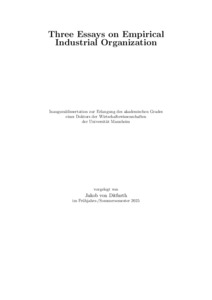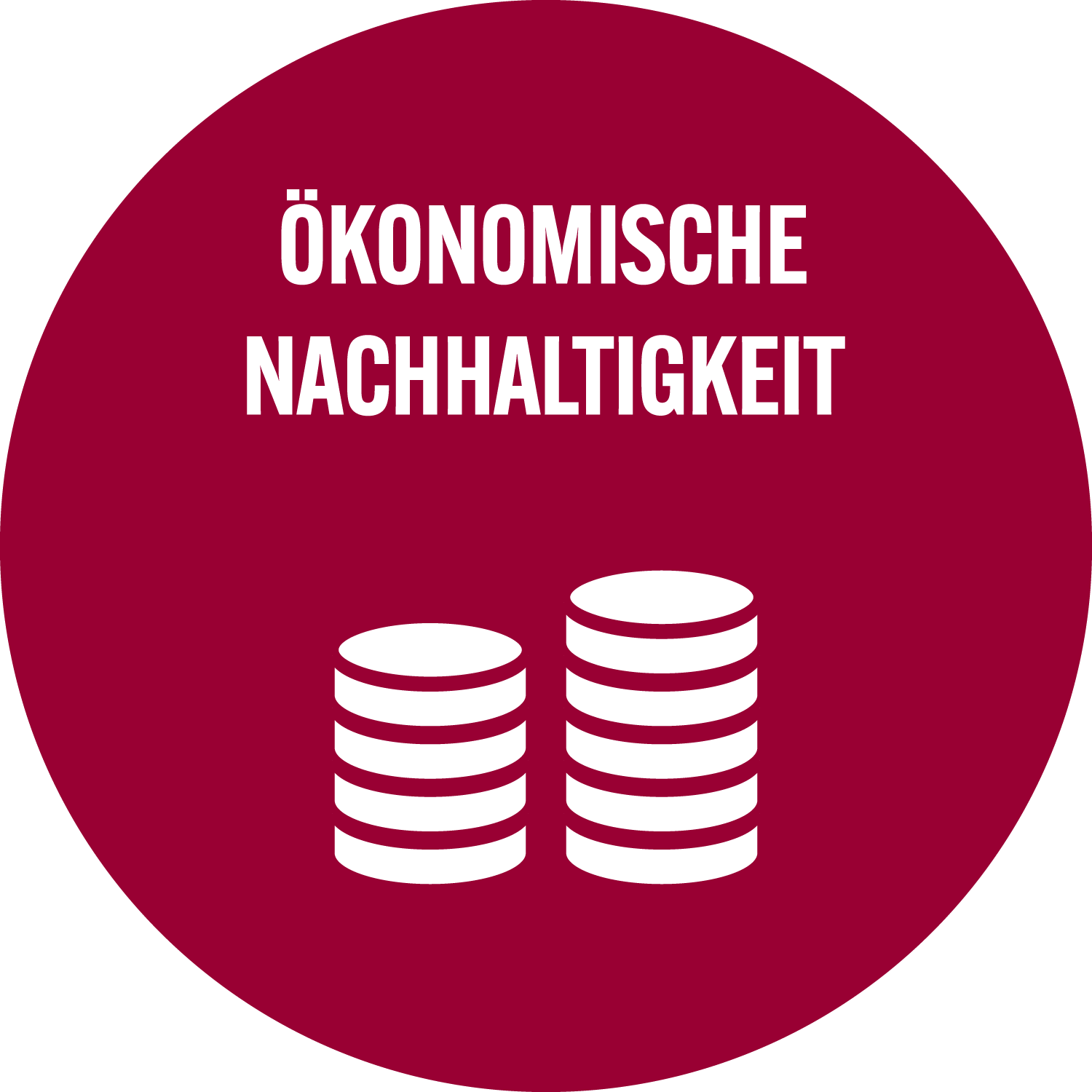|
Three essays on empirical industrial organization
von Ditfurth, Jakob
![[img]](https://madoc.bib.uni-mannheim.de/69992/1.hassmallThumbnailVersion/Dissertation_Jakob_Ditfurth.pdf)  Vorschau |
|
PDF
Dissertation_Jakob_Ditfurth.pdf
- Veröffentlichte Version
Download (3MB)
|
|
URN:
|
urn:nbn:de:bsz:180-madoc-699928
|
|
Dokumenttyp:
|
Dissertation
|
|
Erscheinungsjahr:
|
2025
|
|
Ort der Veröffentlichung:
|
Mannheim
|
|
Hochschule:
|
Universität Mannheim
|
|
Gutachter:
|
Sovinsky, Michelle
|
|
Datum der mündl. Prüfung:
|
2025
|
|
Sprache der Veröffentlichung:
|
Englisch
|
|
Einrichtung:
|
Fakultät für Rechtswissenschaft und Volkswirtschaftslehre > Empirische Industrieökonomik, Angewandte Gesundheitsökonomik (Sovinsky 2015-)
|
|
Lizenz:
|
 Creative Commons Namensnennung 4.0 International (CC BY 4.0)
Creative Commons Namensnennung 4.0 International (CC BY 4.0)
|
|
Fachgebiet:
|
330 Wirtschaft
|
|
Freie Schlagwörter (Englisch):
|
empirical industrial organization , structural demand estimation , bargaining power , product assortment , consumer behavior , scanner data , random utility models , vertical relationships , market power , counterfactual analysis , discrete choice models
|
|
Abstract:
|
This dissertation consists of three chapters in the field of empirical industrial organization, focusing on how firms and policymakers influence market outcomes. The first chapter examines retailer strategies to improve their bargaining power through private labels. The second chapter studies their efforts to increase profits through consumer inattention, while the third chapter explores the design of German subsidies for photovoltaic (PV) system adoption.
In the first chapter, I examine the role of private label products in reshaping retailersupplier negotiations. By introducing private labels, retailers can gain bargaining power over producers, leveraging them as credible substitutes for national brands. Using a structural model to estimate wholesale costs and shelving fees, the study estimates how private labels impact these proxies for bargaining power. The findings suggest that private label entry reduces wholesale costs and increases shelving fees, thus showing that retailers improve their ability to extract favorable terms from producers. In total, I estimate a private label entry to improve retailer’s variable profits by about 0.8% in a given quarter. Additionally, the study explores how these effects vary by retailer size, highlighting that smaller retailers may benefit more from private labels in negotiations.
In the second chapter, joint with Ian Meeker, we investigate consumer inattention to product downsizing, a pricing strategy where firms effectively raise unit prices by reducing package content. Because consumers tend to underuse size information, they may overlook such changes. The pepper industry provides a compelling setting to test consumer inattention to downsizing. We develop a novel method to assess inattention to package content changes and apply it to grocery scanner data. Our findings indicate that nearly all consumers fail to notice reductions in package size. With full information about size changes, consumers would shift toward packages with more content, reducing the market share of downsized products by 25%. This shift would lead to a welfare improvement of approximately 2.7%, despite consumers caring more about price over size.
In the third chapter, joint with Sebastian Rausch, we study Germany’s photovoltaic (PV) subsidy program, one of the world’s largest and most influential renewable energy policy. We estimate a dynamic model of new technology adoption, accounting for heterogeneity in residential ownership structures. Our analysis highlights the sub-optimality of the feed-in tariff tructure, showing that investors—households or homeowners and landlords—heavily discount future benefits, leading to an inefficient use of government funds. High administrative costs associated with tenant electricity contracts strongly iscourage landlords from investing in new energy technologies. Our analysis suggests that governments should prioritize upfront investment subsidies over feed-in tariffs to promote renewable energy adoption and reduce administrative costs in tenant electricity programs to unlock investments by landlords and expand solar energy access for tenants.
|
|
Übersetzter Titel:
|
Drei Essays zur empirischen Industrieökonomik
(Deutsch)
|

 | Dieser Eintrag ist Teil der Universitätsbibliographie. |
 | Das Dokument wird vom Publikationsserver der Universitätsbibliothek Mannheim bereitgestellt. |
 Suche Autoren in Suche Autoren in
Sie haben einen Fehler gefunden? Teilen Sie uns Ihren Korrekturwunsch bitte hier mit: E-Mail
Actions (login required)
 |
Eintrag anzeigen |
|

